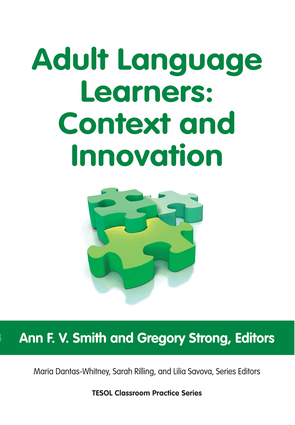Overview
Adult Language Learners: Context and Innovation presents instructional practices that are particularly successful with adults. Adult language learners are goal oriented and direct their learning to fulfill particular needs or demands: to advance their studies, to progress up the career ladder, to follow business opportunities, to pass a driving test, to assist their children with homework, or simply to be successful users of the language. They usually require immediate value and relevance from their studies, and they often learn best when they are engaged in developing their own learning objectives. The volume examines learning environments as varied as Brazil, China, Iran, Japan, Thailand, the United Kingdom, the United States, and Vietnam, always with an emphasis on classroom practice rather than theory. The book is divided into three main areas of education: language teachers as adult learners themselves developing their teaching practice; different means of expanding learner autonomy, an important trait of the adult language learner; and innovative classroom practices. By reading these chapters you will gain an overview of recent developments in adult language learning and of ideas and techniques that can be easily adapted to your own teaching context.Author Biography
Adult Language Learners: Context and Innovation presents instructional practices that are particularly successful with adults. Adult language learners are goal oriented and direct their learning to fulfill particular needs or demands: to advance their studies, to progress up the career ladder, to follow business opportunities, to pass a driving test, to assist their children with homework, or simply to be successful users of the language. They usually require immediate value and relevance from their studies, and they often learn best when they are engaged in developing their own learning obje


